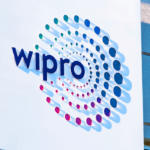A Big Change in 2022
Focus on deliverables with choice of flexibility
A new ecosystem will emerge at the workplace, wherein employees will put their conditions of employment, while assuring the deliverables to employers as per their roles. Employees may seek their choice of flexibility at work. These flexibilities may vary from person to person, and to some extent evolve from business to business, but many of them will be common across sectors.
Duration of work-week
Employees wish to discard the circular mentality of defining a six-day or five-day work-week and a new trend of four-day week is also coming up in some companies. Therefore, it may be possible to spread one’s work over four days or seven, as long as it meets the delivery schedule of the company.
Focus on deliverables
It will be interesting to see a new trend where the key focus of both the employees and the employers will be on deliverables and not the physical setup of the workplace. Rigidity regarding reporting time or workplace will be eliminated. Why should employees waste hours on the road, commuting to office when they can achieve their goals sitting at home? Similarly, why should employers waste precious time beating traffic, battling pollution and risking health to get to work and waste companies’ resources on setting up a large office?
Satellite offices spread across locations
Flexibility for employees to opt for a workplace of their choice nearer to their residences, equipped with relevant resources — space, technology, cafeteria, parking — and easily accessible by personal or public transport, will save a lot of time. It will also address the issue of space constraints for certain employees who may find it challenging to work from home, especially if they live in joint families or tiny apartments.
Trust and continuity
The pandemic dispelled all the notions that once existed in the minds of managers regarding employees being unable to focus much on work, or being slow and unproductive while working from home. Most businesses have realised that operations can be run successfully even virtually, albeit with certain adjustments and modifications. In fact, many companies now wish to promote and build on this experience further, as it has turned out to be beneficial for both the employers and employees.
Employee wellbeing
There is a realisation amongst all that the wellbeing of the individual is very important and it is derived largely through physical and mental health, along with financial autonomy. Employees seem to be increasingly accommodative and willing to compromise on salary but not on their health. Therefore, in the times to come, there will be more emphasis on ensuring work-life balance and ideal work environment. Managers referred as toxic will be forced to change their approach to keep their flocks together, else experience what is now called the ‘great resignation’, which harms the company’s long-term interests.
Manpower optimisation
Organisations will review the manpower requirement, which may reduce once they deploy the right mix of technology platform, with new work processes and extend the scope of automation. They would prefer to reduce headcounts and expand the reach and scope of outsourcing activities.
HR while managing compliance issues
The role of HR will considerably decrease in compliance issues, partially due to automation and partly because of outsourcing. There is a possibility of the focus of HR shifting from compliance to creation, and evolution of new organisational culture and work design. It will be essential for HR to understand the employees’ psychology and put in efforts to influence change by design. This will help build the culture and create a better employee experience. The list of activities conducted by the HR function will certainly decrease in terms of compliance that doesn’t add any significant value.
L&D report to CEO and not HR
Many organisations consider learning and development (L&D) as a vertical under HR in terms of process. This is one of the reasons of failure of L&D in many organisations. The integration of L&D into the organisation fails because the employees lack the motivation to apply their newly-acquired knowledge and skills fully. Organisations will need to focus on the value chain and the full spectrum of L&D, which is otherwise lost when it reports to the functional head. If the L&D vertical reports to the C-suite, then there will be full-fledged discussion on why the organisationis unable to derive the full benefit of the initiatives despite spending adequate money and time.
HR Team: squeeze or expand in 2022
The size of HR teams will shrink based on the organisations’ experiences during the pandemic. Many activities will be outsourced except those that add differential value to the organisation. The key factors will remain hiring the right skills, retaining them by engaging them with meaningful relationships and fulfilling employees’ expectations with real-time experiences. Employee attrition will not be seen as leading to the burden of another hiring or finding a replacement. Rather, it will be considered as a significant loss to the company, because quality talent will go to the competitors to add to their strength and even competitive advantages, especially in the R&D domain.
Value our content... contribute towards our growth. Even a small contribution a month would be of great help for us.
Since eight years, we have been serving the industry through daily news and stories. Our content is free for all and we plan to keep it that way.
Support HRKatha. Pay Here (All it takes is a minute)




































